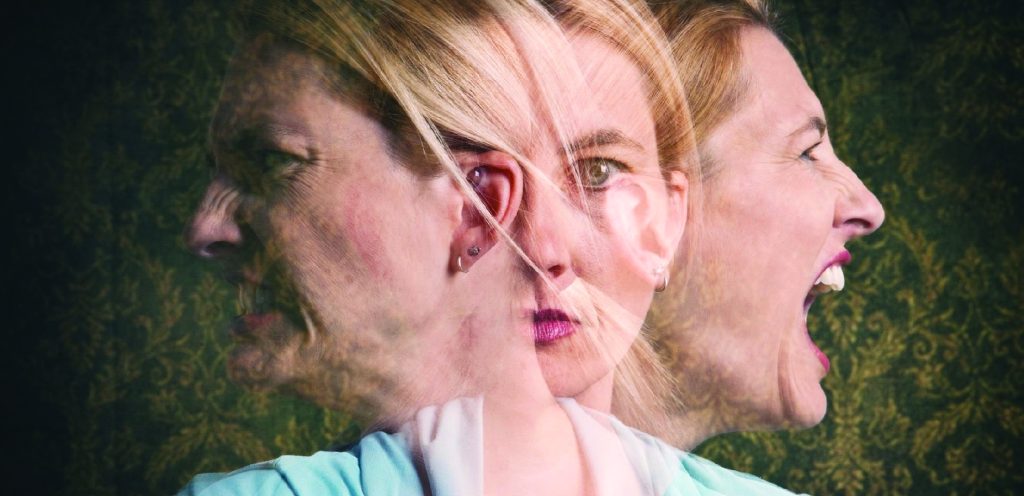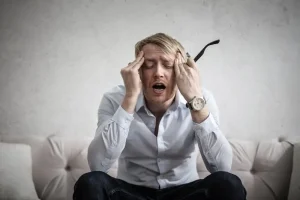
Bipolar disorder is a mental health condition that is typically characterized by extreme changes in mood. People with bipolar disorder experience episodes of mania, where they may feel extremely elated or irritable and have a decreased need for sleep, and episodes of depression, where they may feel hopeless and lack energy.
Symptoms of Bipolar Disorder
Symptoms can vary greatly, but all of them must meet the criteria for diagnosis according to the DSM-V. Generally, those with Bipolar Disorder experience a combination of manic and depressive episodes, but the severity of these episodes can vary from person to person.
Manic episodes can include symptoms such as having an overly positive outlook, engaging in risky behavior, increased energy, decreased need for sleep and racing thoughts. Depressive episodes are characterized by feelings of guilt, hopelessness, low energy, and difficulty concentrating.
Diagnosis will usually involve a physical and mental evaluation as well as meeting the criteria outlined in the DSM-V.
Bipolar Symptoms in Teens
Symptoms of bipolar disorder in teens differ from adults in many ways. While adults often experience manic episodes characterized by extremes of irritability and euphoria, teens with bipolar disorder typically experience more extreme irritability, coupled with aggressive behavior and other intense moods.
Additionally, teens are more likely to experience rapid cycling, which is when their moods swing more frequently. Diagnosis can be tricky as some of the symptoms of bipolar disorder in teens overlap with those of other mental illnesses, such as depression and attention-deficit/hyperactivity disorder.
However, it’s important to get an accurate diagnosis so that appropriate treatment can be provided. Treatment for teens with bipolar disorder typically includes therapy and medication, depending on the severity of the condition. It’s important for parents to understand the warning signs of bipolar disorder and to ensure their teen is getting the help they need.
Bipolar I vs. Bipolar II
Understanding the difference between the two types of bipolar disorder is important for accurately diagnosing and treating the condition. Bipolar I is characterized by more severe manic episodes that can last anywhere from a few days to weeks, while Bipolar II is considered less severe with hypomanic episodes that last only a few days.
Manic episodes are characterized by an abnormally elevated or irritable mood, increased energy and activity, and impulsive or reckless behavior. Hypomanic episodes, on the other hand, are less intense with similar symptoms but lasting only a few days. Regardless of the severity, both types of bipolar disorder require a comprehensive treatment plan to help manage symptoms.
Diagnosis and Treatment
Diagnosis and treatment of bipolar disorder is a complex and individualized process. A mental health professional such as a psychiatrist or psychologist typically begins by conducting a thorough medical and mental health assessment. They will look for signs and symptoms of bipolar disorder, including patterns of depression, mania, and any other mental health issues that may be present.
They may also inquire about family history and lifestyle factors. Depending on the individual, a mental health professional may also order lab tests or imaging scans as part of the diagnostic process. Ultimately, they will use this information to diagnose the individual with bipolar disorder and create a customized treatment plan.
Treatment for bipolar disorder is multifaceted and usually includes a combination of medication and psychotherapy. Medication, such as mood stabilizers, antipsychotics, and antidepressants, can help control the symptoms of bipolar disorder.
Psychotherapy, such as cognitive behavioral therapy and interpersonal therapy, can help individuals gain insight into their illness and develop strategies to manage their condition. It can also provide support and guidance in dealing with the emotional turmoil and daily challenges associated with living with bipolar disorder.
By addressing all aspects of the disorder, individuals can develop the skills needed to successfully manage the condition and lead a fulfilling life.
Inpatient Treatment
Inpatient treatment for Bipolar Disorder is often used as a short-term, intensive solution for those in the grips of a manic or depressive episode. This treatment typically involves round-the-clock monitoring and care in a hospital setting, and may include medication, therapy and support groups.
Inpatient treatment is often used to stabilize a patient before transitioning to outpatient programs. In addition, it is sometimes used to help people who are feeling suicidal or are in danger of self-harm. It can be beneficial in providing immediate access to psychiatric care and alleviating the symptoms of Bipolar Disorder.
If you or someone you know need to be evaluated for bipolar disorder, schedule an appointment at Excel Psychiatry.




